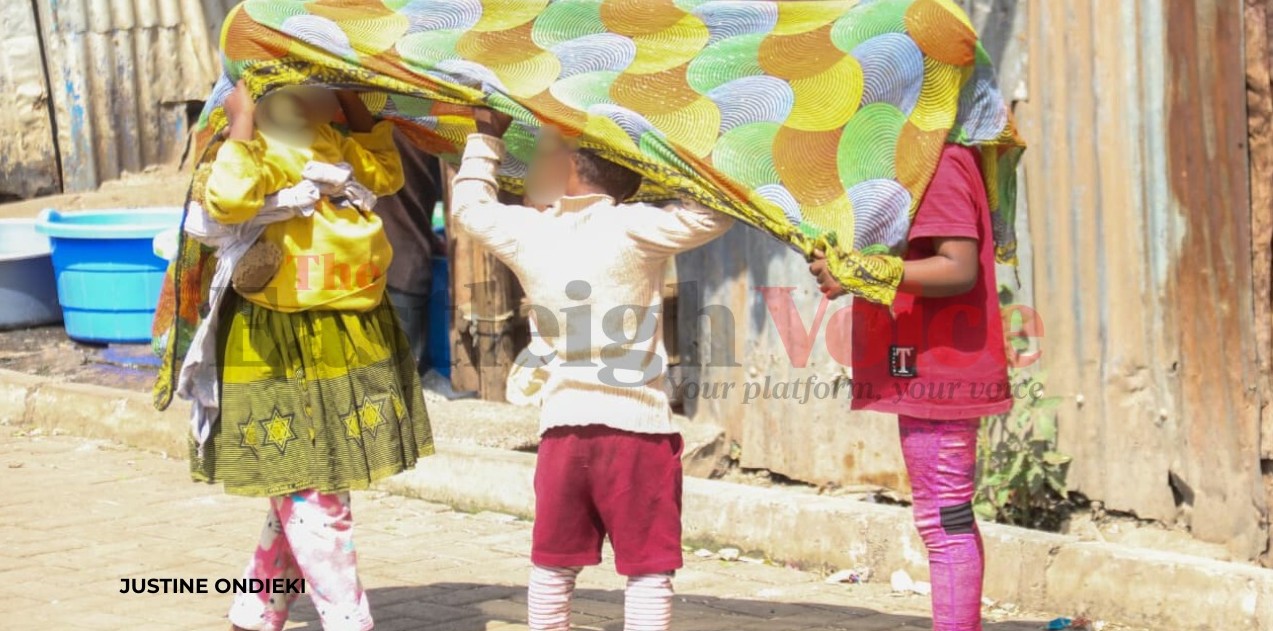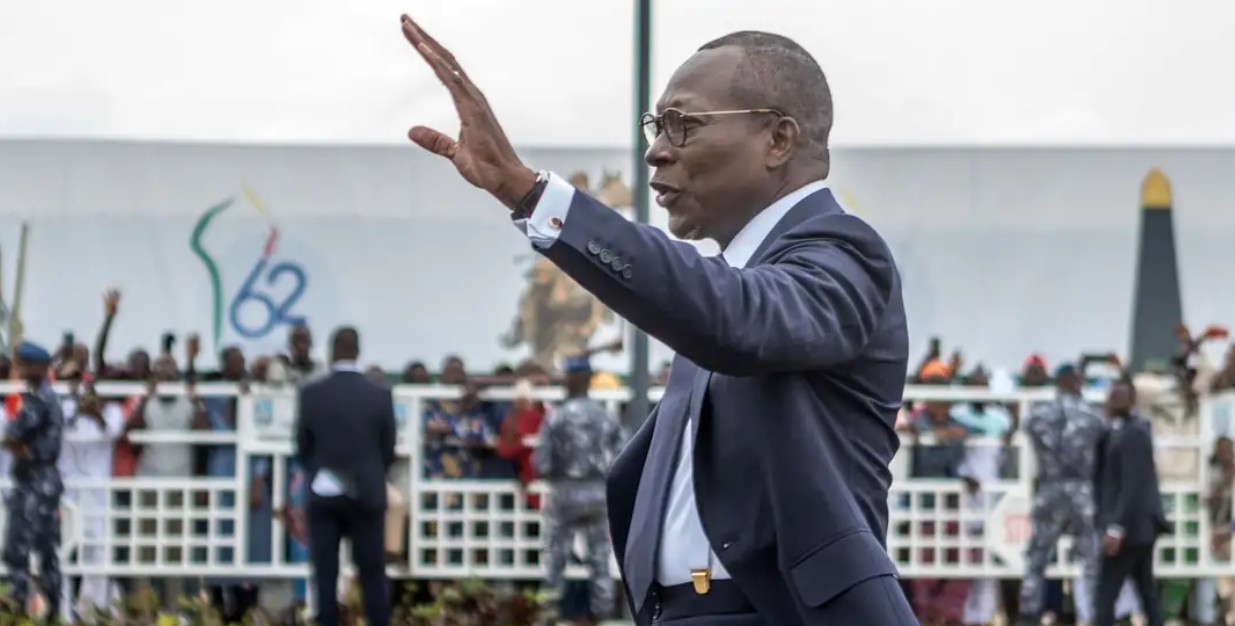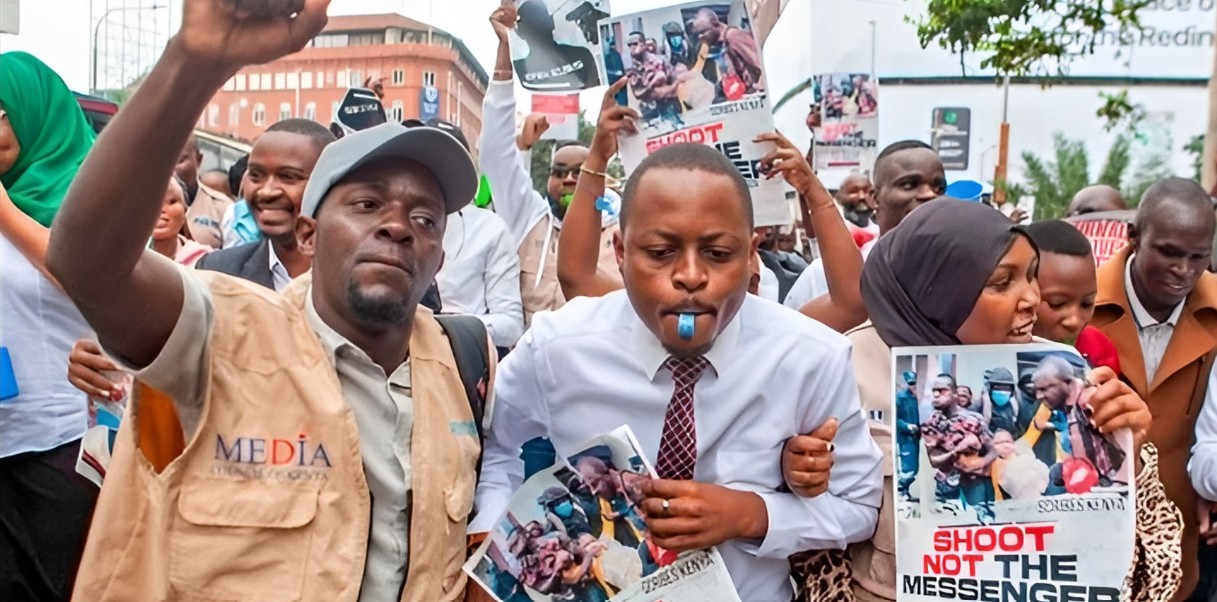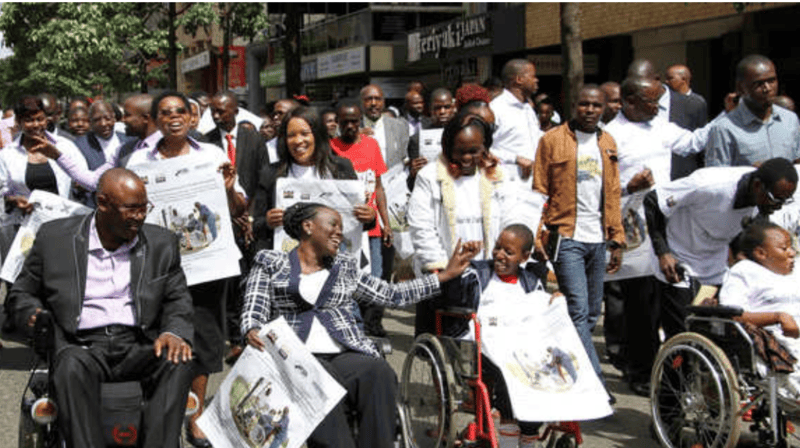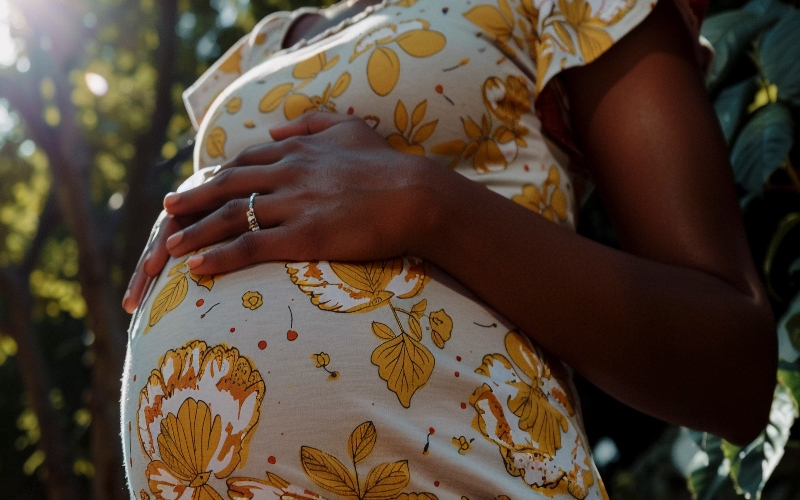Amnesty exposes state-backed harassment network during Kenya’s 2024–2025 Gen Z protests
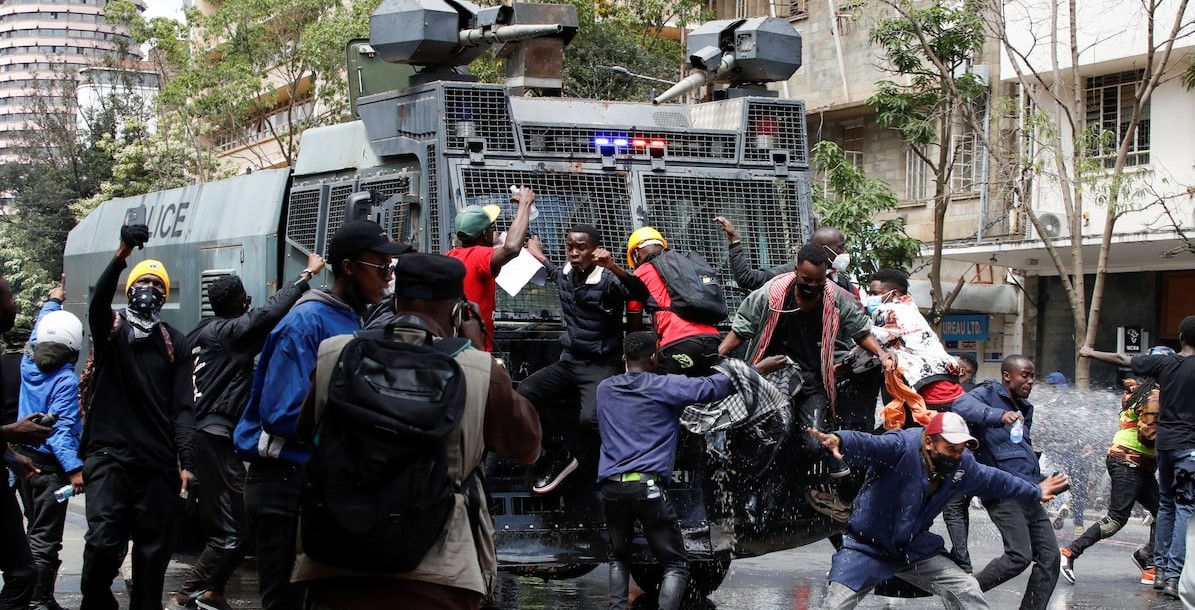
Hanifa Adan, who built a large following on X for her role in the Gen Z movement’s fundraising for victims of state violence and her outspoken calls for police accountability, said she was repeatedly targeted with gender-based and Islamophobic harassment online.
A new report by Amnesty International Kenya accuses the state of using digital platforms to violently target individuals behind the 2024–2025 protests, in what the organisation says was an attempt to suppress freedom of expression.
The report, titled “Tech-facilitated violence against young activists in Kenya” and released on Wednesday afternoon, says Kenyans—especially young people—turned to social media to vent their frustrations over the 2024 Finance Bill, widely viewed as worsening economic hardship. Their online activism helped fuel the massive protests witnessed in Nairobi and other major cities in June last year.
More To Read
- Senators call for real-time CCTV monitoring in all cells to curb police brutality
- Uhuru played key role in securing release of activists Njagi and Oyoo – Irungu Houghton
- Rights groups demand repatriation of Kenyan teacher shot dead in Tanzania
- Police break up demo at Mudavadi’s office as anger grows over Kampala abductions
- Rights groups condemn silence from Ruto, Museveni as abducted Kenyan activists suffer in Uganda
- Relief for Saba Saba protesters as Makadara court slashes bail to Sh30,000
Amnesty highlights X and TikTok as central platforms for mobilising demonstrators, forming what later became known as a leaderless protest movement.
According to the report, young people used these platforms to share social media–savvy content on the contentious Finance Bill and corruption cases, and to crowdsource funds for those arrested during the protests.
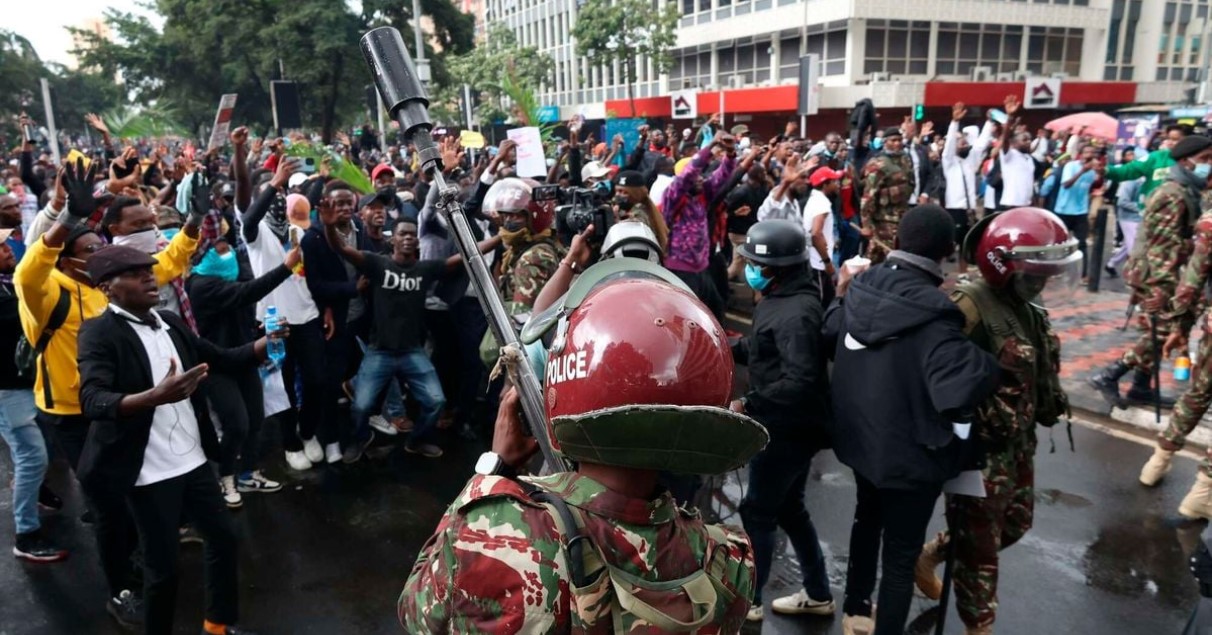 Demonstrators confront anti-riot police officers during Gen Z protests against the Finance Bill, 2024. (Photo: Handout)
Demonstrators confront anti-riot police officers during Gen Z protests against the Finance Bill, 2024. (Photo: Handout)
What followed, Amnesty says, was a violent state response that saw activists trolled and threatened online, as others were unlawfully surveilled, arrested, or forcibly disappeared.
Amnesty notes that the scale and severity of these threats were meant not only to undermine the critical work of human rights defenders (HRDs) but also to create an atmosphere of fear, intimidation, and violence that stifled dissent and slowed human rights progress.
One of the cases cited is that of Albert Ojwang, a 31-year-old digital creator who was arrested in June this year over his online activity and later died in police custody, sparking another round of violent protests ahead of the planned June anniversary demonstrations.
"Once again, the protests saw intense clashes with police who fired tear gas, rubber bullets and live rounds, while failing to stop and even accompanying violent agitators ("goons") who targeted protesters," the report states.
During this period, Amnesty says online harassment and smear campaigns became key tactics to discredit government critics, suppress mobilisation, and force protesters to self-censor.
"By the end of August 2024, the Law Society of Kenya reported that 72 people had been abducted/forcibly disappeared, released or were still missing in relation to the protests. Human Rights Watch found that officers involved in the enforced disappearances were 'largely drawn from the Directorate of Criminal Investigations, supported by the Rapid Deployment Unit, military intelligence, Anti-Terrorism Police Unit, and the National Intelligence Service'," the report adds.
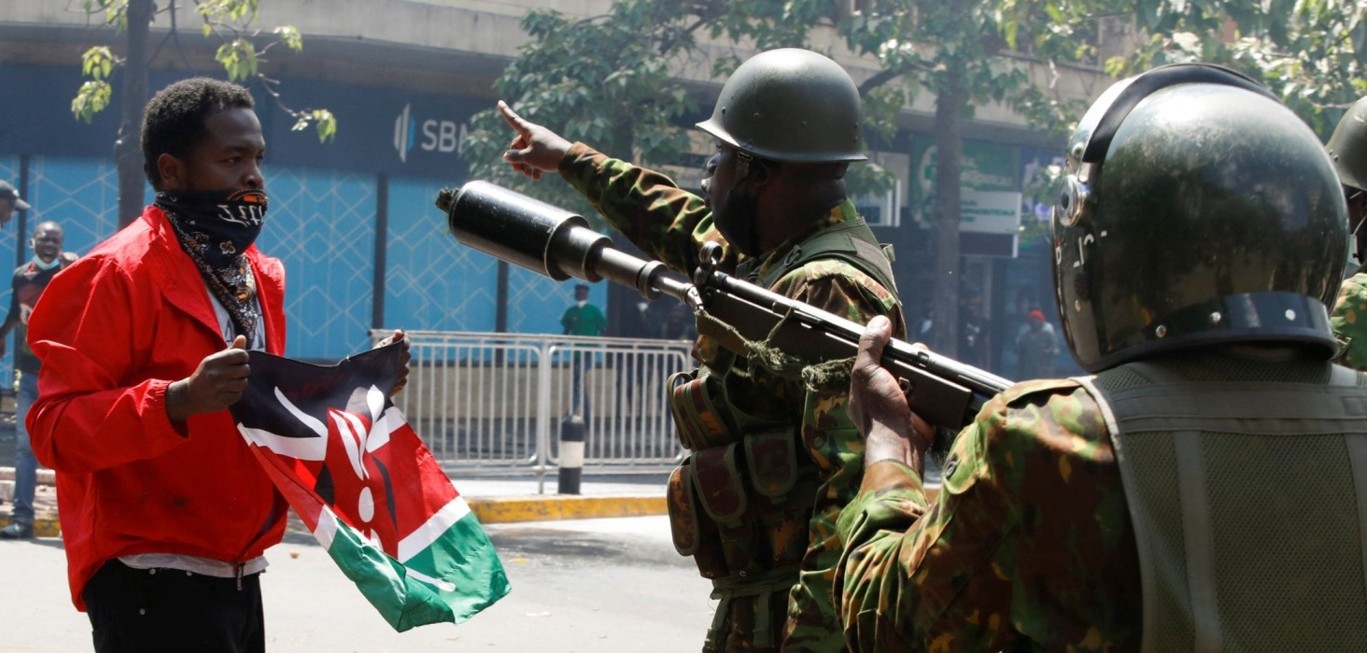 Police officers argue with a protester during the June 25, 2024 anti-Finance Bill demonstration in Nairobi. (Photo: File/REUTERS/Monicah Mwangi)
Police officers argue with a protester during the June 25, 2024 anti-Finance Bill demonstration in Nairobi. (Photo: File/REUTERS/Monicah Mwangi)
The findings are based on desk research, social media analysis, and in-depth interviews and focus groups with 31 young HRDs aged 18 to 28, along with seven older HRDs involved in the 2024 protests.
These HRDs described how protest mobilisation has changed over the last decade, and the growing challenges facing human rights activism in Kenya.
"They represent diverse causes and groups, from student movements to social justice centres (a nationwide network of community-led organisations campaigning for the needs of residents of informal settlements), feminist, LGBTI and climate justice activists and children's rights defenders. Many participants come from marginalised socio-economic backgrounds who viewed their activism as part of a broader struggle for social justice in post-colonial Kenya," Amnesty noted.
Nine of the 31 young HRDs told Amnesty they received personal violent threats through direct messages on X, TikTok, Facebook, and WhatsApp during the 2024 protests, targeting them for their outspoken support of the demonstrations.
"I had people coming into my inbox and telling me, 'You will die and leave your kids. We will come and attack you. What you're doing is not right'... I even had to change my child's school. Someone sent me my child's name, the age, the stream that they are in, and the school bus number plate. And they told me, 'If you continue doing what you're doing, then we will take care of this child for you'," a 27-year-old HRD from Mombasa said.
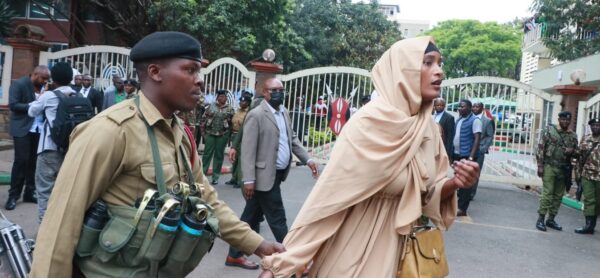 A police officer attempts to arrest activist Hanifa Adan outside Harambee House in Nairobi on September 24, 2024. (Photo: File/Justine Ondieki)
A police officer attempts to arrest activist Hanifa Adan outside Harambee House in Nairobi on September 24, 2024. (Photo: File/Justine Ondieki)
Hanifa Adan, who gained a large following on X for her role in the Gen Z movement’s fundraising for victims of state violence and her public calls for accountability over police brutality, said she was regularly targeted with gender-based and Islamophobic harassment.
According to Amnesty, state-sponsored bloggers coordinated attacks on her identity as a young Muslim woman by spreading falsehoods about her personal life to vilify and isolate her from her community.
"Having strangers say things about you every single day, being targeted every single day, it's hard. It took away the spark, the joy. It took away who I was," she said.
The report also references Access Now, which monitors global internet shutdowns and reported that "starting at approximately 4 pm local time on June 25, connectivity dropped nationwide by nearly 40 per cent across at least 20 networks according to measurements from IODA and Cloudflare."
Signal and X also experienced anomalies linked to connectivity problems, especially on the country’s largest operator, Safaricom, according to the report.
Other contributors to the report included journalists, representatives of digital and human rights organisations documenting the protests, and a self-described “keyboard warrior” who admitted to helping propagate state-aligned messaging.
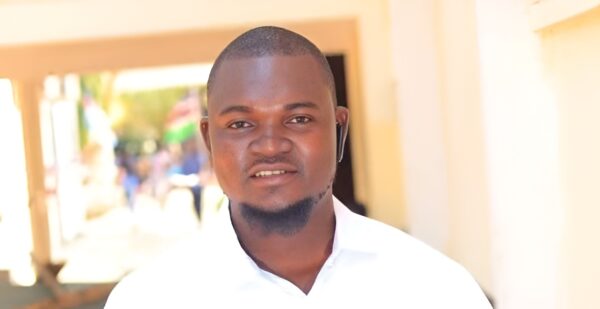 Albert Ojwang, who was arrested at his family home in Kakot, Homa Bay County, ended up dead in police custody in Nairobi. (Photo: File)
Albert Ojwang, who was arrested at his family home in Kakot, Homa Bay County, ended up dead in police custody in Nairobi. (Photo: File)
The unnamed individual stated that he was part of a WhatsApp-organised network of approximately 20 people who were paid between Sh25,000 and Sh50,000 per month to promote government-preferred narratives and ensure they ranked among the top trending topics.
"Most of the things you see trending in Kenya, I'm among the people doing that," he said, adding that during major protests, the group created counter-campaigns and hashtags in real time to drown out protest-related trends.
The report further reveals that the state conducted digital surveillance on targeted individuals through phone triangulation, tracking, and the alleged use of spyware.
"The chilling effects of such harassment and incitement to violence goes far beyond their immediate targets. It must be stopped before it silences critical voices, undermines civil liberties and fosters a culture of fear irreconcilable with our constitutional freedoms," Amnesty Kenya Executive Director Irũngũ Houghton warned.
Top Stories Today
